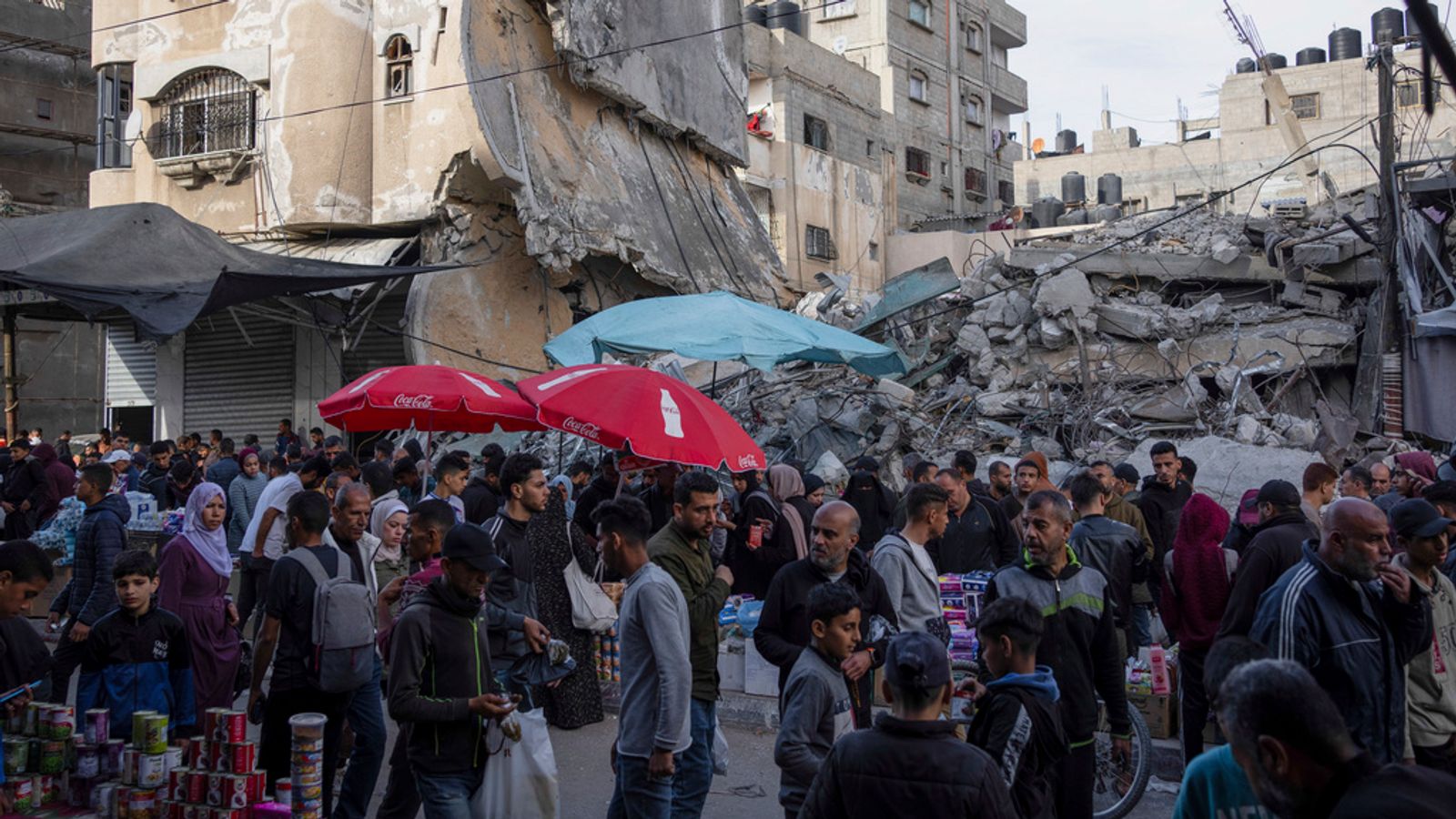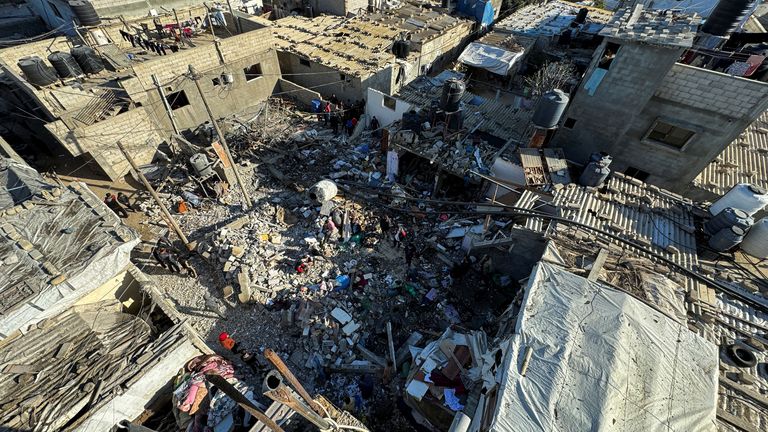Israeli Prime Minister Benjamin Netanyahu has reportedly approved plans for a military operation in Rafah which includes the evacuation of the population.
Now all eyes are on Washington where red lines (albeit blurry ones) have been set by President Joe Biden.
Last month, the president said that Israel should not attack Rafah without “a credible and executable plan for ensuring the safety” of the population there – well over a million mostly displaced people.
This past weekend, in an interview with Sky News’ US partner NBC News, Mr Biden said invading Rafah was a “red line” but he used contradictory and confusing language.
He said: “It is a red line, but I’m never gonna leave Israel. The defence of Israel is still critical, so there’s no red line I’m gonna cut off all weapons…”.
This comment prompted a blunt response from Mr Netanyahu, who said: “You know, I have a red line. You know what the red line is? That 7 October doesn’t happen again. Never happens again.”
Israel’s military logic for going into Rafah is that the southern Gazan city is where the remaining Hamas battalions have retreated to.
The problem is, half the population of Gaza has retreated there too.
Humanitarian agencies have said that any move on Rafah would be disastrous.
Germany’s foreign minister Annalena Baerbock warned this week that it would create “a humanitarian catastrophe”.
Yesterday, in a tetchy exchange at the US State Department, spokesman Matt Miller was pressed on the forced movement of already displaced people to another part of Gaza.
Said Arikat, the Washington correspondent for the Jerusalem-based newspaper Al-Quds, asked why the Gazan people were being treated “like a herd of cattle”.
“Israel plans to direct Palestinians out of Rafah ahead of an anticipated offensive. Is that really acceptable?
“I mean, are they a herd of cattle? You keep moving them north, south, and so on?
“You keep moving them from place to place? Is that really acceptable to the Government of the United States?” he asked.
Mr Miller replied: “Before I pass any sort of judgement, we are going to continue to do what we have said we would do, which is to look for the Government of Israel to provide a plan about how they would address the humanitarian situation in Rafah.”
He continued: “Absent having seen such a plan and seeing that such a plan is credible and can be executed and implemented, that type of operation is not one we could support.”
Read more from Sky News:
Judge rejects Trump’s bid to throw out classified documents case
NI leaders urge ceasefire in Middle East during first joint visit to US
Mr Arikat pushed back: “Yeah. But in principle, the notion of moving people like this – keep moving them endlessly. I don’t know for how long.
“Maybe this war will take another six months and so on. Is that something that’s fine with you?”
Mr Miller replied: “So, with respect, I will wait to see a plan.”
Here in Washington it had been assumed that any Rafah operation would take time to prepare and that Israel would provide the Americans with a plan.
But the American-Israeli relationship is increasingly strained.
Senate Majority Leader Chuck Schumer’s “Netanyahu must go” comments this week reflected a view the White House shares but can’t articulate.
Maybe a cornered, frustrated but determined Mr Netanyahu will decide now to push through Mr Biden’s blurry red line and press on with the Rafah operation.
This story originally appeared on Skynews



